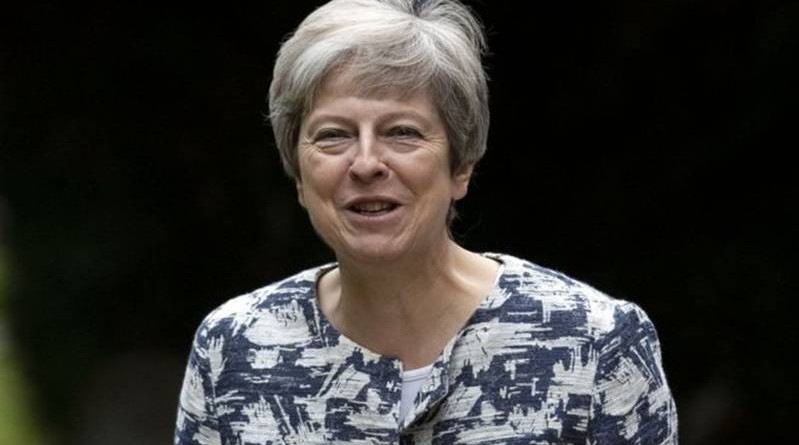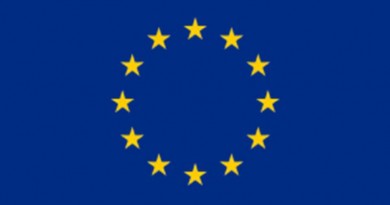British Prime Minister, Theresa May, is visiting Nigeria, Kenya and South Africa
The British Prime Minister, Theresa May, is preparing to visit Africa for the first time since becoming prime minister in 2016.
Mrs May will fly to South Africa on Tuesday before traveling to Nigeria and Kenya as part of a trade mission aimed at boosting post-Brexit fortunes.
The prime minister said the trip would be a “unique opportunity at a unique time for the UK”.
She added the UK wanted to “deepen and strengthen its global partnerships” as it prepared to leave the EU in 2019.
Mrs May will be accompanied to the three countries – all of them Commonwealth countries – by a 29-strong business delegation.
The business delegation is made up of 29 representatives from UK business – half of which are SMEs. The delegation shows the breadth and depth of British expertise in technology, infrastructure, and financial and professional services.
Delegates include:
- The London Stock Exchange
- Solar Tech provider, Northumbria Energy
- Cardiff-based cooling technology firm Sure Chill
- Northern Irish Agri-tech leader, Devenish Nutrition
- London start-up Farm.ink
- The Scotch Whisky Association and Midlands manufacturing giant, JCB
Also traveling with the Prime Minister are Trade Minister George Hollingbery and Minister for Africa, Harriett Baldwin.
Also, the Secretary of State for Wales Alun Cairns will join the visit in South Africa to support the Welsh companies in the business delegation, while the Lord Mayor of London Charles Bowman is also accompanying the Prime Minister.
Security issues will also feature on her agenda and she is expected to discuss the threat of Boko Haram in Nigeria, and the role of British troops based in Kenya who are helping countries fight al-Shabab militants in Somalia.
According to a statement by the UK government, “The Prime Minister’s central message will be focused on a renewed partnership between the UK and Africa, which will seek to maximise shared opportunities and tackle common challenges in a continent that is growing at a rapid pace – from the Sahara to South Africa,” the UK government said in a statement.
“As Africa seeks to meet the needs of its growing population the visit will also emphasise that it is in the world’s interest to help secure African stability, jobs and growth because conflict, poor work prospects and economic instability will continue to encourage migration and dangerous journeys to Europe.
“Because nations cannot prosper without security, the prime minister will also use the visit to announce further support to tackle instability across the region.”
May said she is proud to lead a delegation to Africa, expressing delight over being the first British prime minister to visit Kenya in 30 years.
“Africa stands right on the cusp of playing a transformative role in the global economy, and as longstanding partners this trip is a unique opportunity at a unique time for the UK to set out our ambition to work even closer together,” She was quoted to have said.
“A more prosperous, growing and trading Africa is in all of our interests and its incredible potential will only be realised through a concerted partnership between governments, global institutions and business.
“As we prepare to leave the European Union, now is the time for the UK to deepen and strengthen its global partnerships. This week I am looking forward to discussing how we can do that alongside Africa to help deliver important investment and jobs as well as continue to work together to maintain stability and security.”
The PM’s diary
Tuesday – Mrs May will fly into Cape Town where she will meet young people, before delivering a keynote speech on trade and how UK private sector investment can be brought into Africa.
After a bilateral meeting with South African President Cyril Ramaphosa, she is expected to visit Robben Island, where Nelson Mandela was imprisoned.
Wednesday – Mrs May intends to meet Nigerian President Muhammadu Buhari in the capital Abuja before meeting victims of modern slavery in Lagos.
Thursday – In Kenya, Mrs May will meet president Uhuru Kenyatta before visiting British troops and a business school. A state dinner hosted by Mr Kenyatta will conclude the trip.
Mrs May’s visit to Nairobi will mark the first by a UK prime minister to Kenya since Margaret Thatcher in 1988.
It is also the first to Sub-Saharan Africa by a British leader since David Cameron in 2013 for Mr Mandela’s memorial service.
Mrs May said a “prosperous, growing and trading Africa” was “in all of our interests”, adding the continent’s “incredible potential will only be realised through a concerted partnership between governments, global institutions and business”.
A Downing Street spokeswoman added: “The PM will use the visit to announce further support to tackle instability across the region, because nations can’t prosper without it.”
During her time in South Africa, Mrs May is also due to present a World War One relic – linked to one of the worst maritime disasters in English waters – to Mr Ramaphosa.
The SS Mendi sank off the Isle of Wight in 1917 killing more than 600 black South Africans en route to the Western Front to support British troops.
The ship’s bell was given to BBC reporter Steve Humphrey in 2017 in a plastic bag at Swanage Pier, Dorset, after an anonymous phone call – and will now be handed back by Mrs May.




